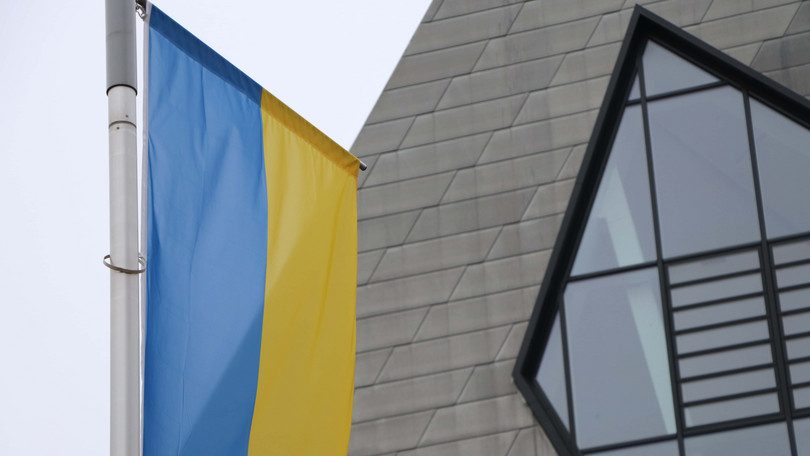Freedom, peace, security - but how?
2022-03-04 On February 24, 2022, Russia attacked Ukraine. Since then, no one can ignore the fact that war is raging in Europe. Since then, the logo of the Leuphana Conference Week has read "NEW DEAL: Green & Peaceful". But what can we really do for peace? Sascha Spoun, President of Leuphana, discussed this question during the conference week in a special broadcast with political scientist Cathryn Clüver Ashbrook and Tobias Lenz, Professor of International Relations.
Perhaps it's partly the famous hindsight bias. But for many, the war in Ukraine comes as no surprise in retrospect, says Cathryn Clüver Ashbrook. She points to the wars in Chechnya in 2001, Georgia in 2008, Syria in 2011, and Crimea in 2014. Despite these obvious advances, the West has long adhered to the maxim of "change through trade" and tried to involve Russia where it may not have wanted to be involved, the political scientist argues. Tobias Lenz sees the attack on Ukraine as an escalation of "the policy of small steps" that Russia has pursued so far. In view of this new quality of Russian aggression, the question now arises: What can be done to bring peace to Europe?
Solidarity is certainly a central point. People who remain in Ukraine should not feel that the rest of the world is abandoning them. People fleeing Ukraine needed a safe place and support. "Demonstrate humanity, keep humanity", Clüver Ashbrook sums it up. Equally central, she says, is ensuring the flow of information. A shared understanding of facts and realities is a "bedrock of democracy."
Both speakers, however, do not see any realistic possibility that Ukraine could quickly become a member of the EU now. Even in the beginning, such a thing is only conceivable when diplomatic solutions have been found for the current conflict, says Lenz. However, he is hopeful that the sanctions imposed on Russia will indeed put pressure in the right places. The loyalty of Russian oligarchs to Putin could wane as economic losses continue. A serious energy transition that ends our dependence on Russian gas would be another important step in weakening Putin's power base.
To conclude the conversation, Sascha Spoun echoed a thought from his opening speech to the conference week: Putin and his government do not stand for the entire Russian population. Consciously making this differentiation again and again could be the bridge that leads us to a future with a peaceful Russia.



